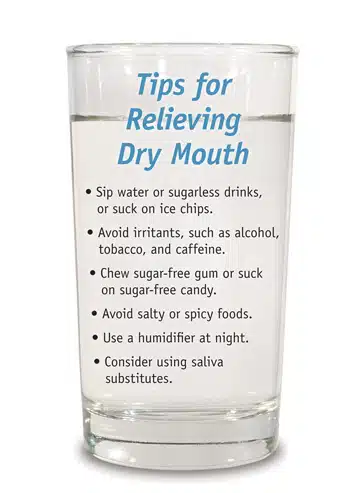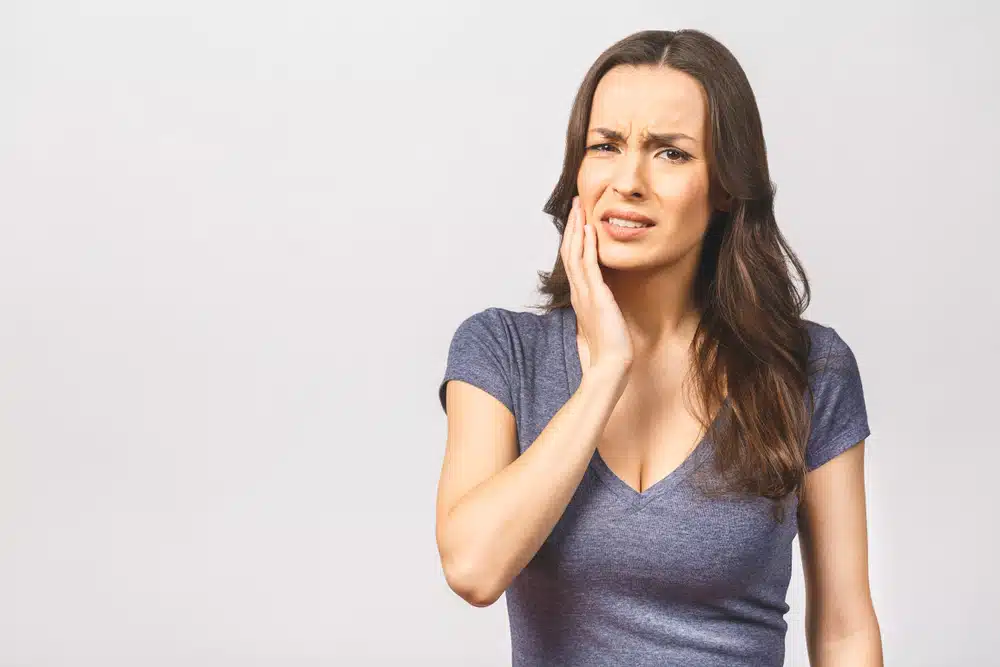
Dry Mouth
A “Silent” Dental Condition
Dry mouth, also called xerostomia, is a common oral health problem. Unfortunately, for some patients it becomes a “silent” condition that often goes undiagnosed and untreated. While there are many potential reasons for this condition, one of the most frequent contributing factors is the use of medications. Over four hundred commonly prescribed drugs list dry mouth as a potential side effect.
While this condition is fairly common in the general population, the prevalence increases with age. This is likely because many older adults take medications for one or a number of co-existing medical conditions.
Though some people may consider dry mouth an inconsequential medical or dental concern, it can be a troublesome symptom also associated with systemic diseases and health conditions. Things that most people take for granted, such as being able to chew their food – or even to taste it – result in a reduced quality of life for the patient with xerostomia.
Negative effects of dry mouth can include:
• Increased dental decay
• Oral infections
• Cracks and fissures in the tissues of the mouth
• Denture sores and ulcerations
• A decreased willingness or ability to speak easily
Keep in mind that almost everyone has experienced dry mouth at some time in their lives. Dehydration following excessive perspiration, diarrhea, or alcohol consumption are experiences many people have experienced at one time or another. These situations are generally transient and easily identified. It should be noted here that not only alcohol consumption, but simply rinsing with alcohol-containing mouthwashes can result in a dry mouth. Many patients hold these rinses in their mouths for much longer than the recommended 30 second period. This can produce a type of tissue burn called sloughing; however, even regular use can cause a drying effect for many individuals.
If, however, you find any of the following problems to be daily events, you should raise the issue with your dentist or physician:
• Do you consistently need to sip liquids to help you to swallow your food?
• Does your mouth feel dry whenever you eat?
• Do you have any difficulty swallowing?
• Does the amount of saliva in your mouth seem to be much less than you remember, or do you not notice the difference?
There are several simple things your health practitioner can do to evaluate your condition. A medical history will also provide clues. For example, certain conditions such as diabetes, cancer treatments, and Sjögren’s syndrome have also been connected with dry mouth. (Sjögren’s syndrome is a chronic autoimmune disease in which a person’s white blood cells attack their moisture-producing glands.)
Keep in mind that dry mouth symptoms may not appear until saliva production has been reduced to approximately half the normal flow.
While it is always best to identify the source of the problem to seek a long-term resolution, sometimes it is necessary to provide symptomatic relief. A number of products have been developed that can help the dry-mouth patient who so often has extra sensitive mouth tissues. These include stimulation products such as chewing gums, specially formulated toothpastes and mouthwashes that are free of irritating ingredients, and moisturizing gels or sprays.
The important thing is that you do not ignore dry mouth symptoms if they exist. Talk to your dentist or doctor. Day-to-day symptoms and their complications can be managed. If you and your doctor correctly identify the source, perhaps those problems can even be eliminated over time. The simple pleasures of life – eating comfortably, tasting an enjoyable meal, laughing freely – shouldn’t be just a memory.





